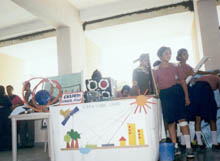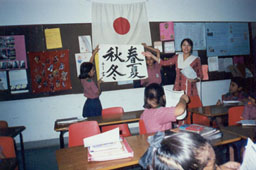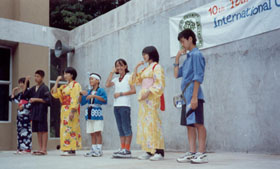Evaluation System
An ongoing evaluation system is followed, the basic purpose of which is to give feedback on a regular basis to the child, parent, educator and school. Evaluation is also a learning tool and a preparatory exercise for "real life" testing situations. A mix of methods projects, activities and assignments, surprise and announced tests and from class 5 onwards exams as well are followed. "Exams" in the sense of high pressure, strenuous tests which are pre-announced and have significant weightage, tend to create undue strain are avoided till class 4. However, the students of class 5 have half-yearly and final exams, in order to prepare them for the coming board exams. The evaluation system tests the abilities of the child, and not rote memory, which is why questions focus less on "lessons" done in class and more on the skills acquired from them.
The basic objective of announced tests is to provide a reasonable amount of preparation time, which will also help children overcome ‘exam phobia’. Whereas, surprise tests help in gauging the level of internalization and understanding of concepts learned at a given point in time. Similarly, projects help children to develop an ability to learn on their own, by locating information and not depending on memorization of facts. In English, for example, understanding of nouns and verbs is evaluated through a project of developing a game. Likewise, in Math’s to evaluate the concept of money a market situation is created where children actually get the chance to negotiate and buy objects. Class participation, attention, interest, regularity and quality of homework and class work, and educator’s observation are also an integral part of the evaluation process. They give an estimate of the quality and consistency of performance over a period of time. All these elements ensure that evaluation is objective and not based on any one particular skill or ability.

Teachers Exchange Programme
Eklavya School also has exchange programmes for educators with other schools in India and abroad. So a physics teacher from USA or a History teacher from Calcutta may come to Eklavya for one year and take classes. The school already has a Japanese educator, a special needs educator from Canada and Dutch designers.

Student Exchange Programme –
A group of student from Japan visited Eklavya. They attended classes so that they get an experience od an Indian school. They were put up with host families of students studying at Eklavya. Theywere taken for visits to different places in and around Ahmedabad.
